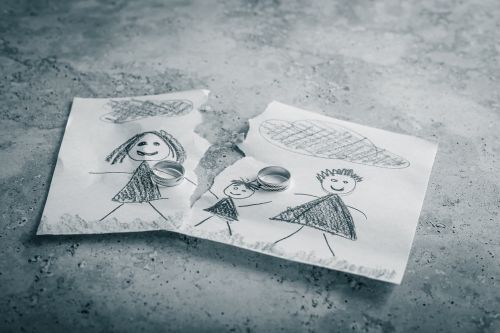Menu



Divorce doesn’t only impact you and your spouse — it can also cause emotional strain on your children. Although your children may not understand the complexities of your relationship, they do know what emotional security feels like. If you are parting ways with your spouse, it’s important to ensure you take steps to reduce the emotional harm your children may experience and prioritize their best interests. In this article, we will discuss several ways to help minimize the effects of divorce on children.
Here are several tips on how to minimize the effects of divorce on children:
While you and your co-parent don’t need to be friends, it’s essential to work together for the benefit of your children. It may be best to view the co-parenting relationship as you would a business relationship to help keep the emotions out of it. To maintain a positive co-parenting relationship, be sure to:
A successful co-parenting relationship emphasizes collaboration and respect. Importantly, the focus should be on your children – not your conflict with each other.
Your communication with your co-parent should be strictly about your children to keep conflict at a minimum. It’s always best to communicate directly with your co-parent — using your children as messengers can make them feel as if they are caught in the middle and need to choose a side. It can also lead to anxiety and feelings of insecurity. Similarly, you should never speak badly about your co-parent to your children. Effective communication between you and your co-parent can not only reduce your stress, but it can create a more stable environment for your children and help them to thrive.
Ensuring consistency and predictability can reduce the effects of divorce on children. If possible, it’s best to have the same routine and rules in both households. This can help your children feel safe and secure. If there is a significant difference between the rules in your home and your co-parent’s household, it can create confusion and disrupt the children’s sense of stability.
Children feel a wide range of emotions when their parents divorce — and they may not always know how to put what they’re feeling into words. Check in with your children regularly and encourage them to talk with you about their emotions. Ask them open-ended questions and acknowledge their feelings. By talking with your children about their emotions, you can help them feel understood and comfortable sharing their feelings.
To reduce the emotional effects of divorce on children, it’s essential to provide them with the support they need. Keep the lines of communication open and provide them with a safe space to express their emotions. Let your children know what will change and what will remain the same. In addition, make certain you remind your children that both their parents love them, and reassure them that they had nothing to do with the divorce.
When you and your spouse are going through the divorce process, it’s critical to help your children develop healthy coping mechanisms. Encouraging them to engage in physical activity, outdoor play, or sports can improve their moods. Additionally, creative outlets such as painting, music, drawing, or writing can help your children express their emotions.
Seeking professional counseling is one of the best ways to minimize the effects of divorce on children. A therapist, counselor, or psychiatrist can help your children process their emotions in a healthy manner and navigate the emotional challenges of their parents’ divorce. A mental health professional can also offer the support you and your co-parent might need.
Divorce mediation has many benefits, including reducing the emotional impact of divorce. Mediation can lessen your stress, minimize conflict with your co-parent, and promote cooperation — which can all have a positive effect on your children. Mediation can also allow you and your co-parent to find tailored solutions regarding custody matters that might not be available in the courtroom. Additionally, since mediation saves money, you will be able to spend more of your resources on your children’s education, extracurricular activities, and other needs.
If you are going through divorce, it’s vital to have a knowledgeable attorney who can guide you through the process and ensure the best interests of your children are met. At NVP Family Law, we provide dedicated counsel and personalized attention to clients for divorce and family law matters. We welcome you to contact us for a consultation online or by calling 470-314-0253 to learn how we can help.
© 2025 NVP Family Law, LLC|Legal Disclaimer|Privacy Policy